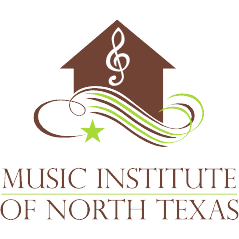The Benefits of Studying Music as Early as Age 3

The Benefit of studying music as early as 3 at Music Institute of North Texas
At the Music Institute of North Texas, we believe that music is a universal language that transcends boundaries, enriches lives, and stimulates creativity. Music education can start as early as age 3 and offers countless benefits that extend far beyond the world of notes and melodies. In this blog post, we'll explore the incredible advantages of introducing your child to the world of music at such a young age and how it can positively impact their cognitive, emotional, and social development.
Cognitive Development
A. Improved Brain Development Research has shown that early exposure to music can significantly enhance brain development in young children. The brain is like a sponge during these early years, and musical activities such as singing, playing instruments, and listening to different rhythms can help strengthen various neural connections. This boost in brain development can lead to better memory, problem-solving skills, and overall cognitive abilities.
B. Enhanced Academic Performance Music education has been linked to improved performance in academic subjects, including mathematics and language. Learning to read sheet music, understand rhythm, and play an instrument involves a high level of concentration, which can transfer over to other aspects of a child's academic life. By studying music from a young age, children are better prepared for the challenges of school.
Emotional Development
A. Self-Expression and Emotional Regulation Music provides a unique outlet for self-expression, allowing children to convey their emotions through sound. Playing an instrument, singing, or even dancing can help young children understand and manage their feelings. This emotional awareness is crucial for building a strong foundation for emotional intelligence.
B. Boosted Confidence and Self-Esteem Performing in front of an audience, whether it's just family or a larger group, can boost a child's confidence and self-esteem. Music encourages children to step out of their comfort zones, take risks, and learn from their experiences. Over time, this can lead to a greater sense of self-assurance.
Social Development
A. Teamwork and Collaboration Learning music often involves group activities such as ensemble performances or group lessons. This fosters teamwork, cooperation, and collaboration among children. They learn to listen to others, follow a conductor, and work together to create beautiful music. These skills are transferable to various social situations throughout their lives.
B. Building Strong Relationships Music can be a great way for children to connect with others who share their passion. Friendships formed through music often last a lifetime, and the shared experience of creating music together can strengthen the bonds between children and their peers.
Instrument of choice-Piano
The piano stands out as an excellent instrument for young beginners. The piano allows beginners to "visualize" music in a straightforward manner. The layout of the keys makes it easier to understand musical concepts such as intervals, pitch, chords. Additionally, the piano offers a broad range of sound, enabling players to explore various harmonies, colors and dynamics. Its percussive nature also helps in developing a strong sense of rhythm. Moreover, playing the piano enhances hand-eye coordination and fine motor skills. The instrument's ability to produce both melody and harmony simultaneously provides a holistic understanding of music, making it an ideal starting point for aspiring musicians. Many students have found that studying piano as their first instruments help them tremendously in building a good music foundation, and makes learning other instruments easier and faster should they decide to pursue learning instruments in the future.
Lifelong Appreciation for Music
Studying music at an early age instills a lifelong appreciation for the art form. Children who start their musical journey early are more likely to continue playing instruments, singing, or attending concerts as they grow older. This lasting connection to music can enrich their lives and provide a lifelong source of joy and fulfillment.
At the Music Institute of North Texas, we are committed to nurturing the love of music in children. The benefits of early music education extend far beyond the realm of music itself, positively impacting cognitive, emotional, and social development. By introducing your child to the world of music at an early age, you provide them with a gift that will last a lifetime, enriching their lives in countless ways. Embrace the opportunity to start this incredible journey with us, and watch your child thrive in ways you never thought possible. Music truly has the power to transform lives from an early age, and we're here to help make that transformation happen.
For more information, please email us HERE
or call 972.668.6600.
School Hours:
Monday - Friday: 1:00-8:00pm
Saturday: 9:00am-5:00pm
Sunday: 1:00-6:00pm
Email: Info@MusicInstituteNT.com
Address: 4747 Ohio Drive, Frisco, TX 75035
Phone: 972.668.6600
© Copyright
All Rights Reserved
